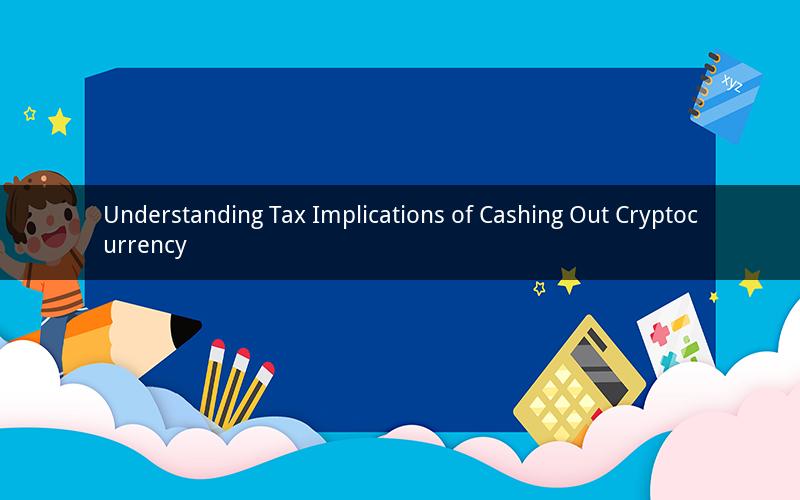
Cashing out cryptocurrency has become a common practice for many investors and traders. However, it is crucial to understand the tax implications associated with this process. In this article, we will delve into the topic of whether you need to pay taxes on cashing out cryptocurrency and provide valuable insights to help you navigate this complex issue.
1. Do you pay taxes on cashing out cryptocurrency?
Yes, you are generally required to pay taxes on cashing out cryptocurrency. The Internal Revenue Service (IRS) in the United States considers cryptocurrency as property, and any gains or losses from its sale or exchange are subject to capital gains tax. However, the tax treatment may vary depending on your jurisdiction.
2. How is the tax calculated on cashing out cryptocurrency?
The tax calculation on cashing out cryptocurrency involves determining the cost basis and the fair market value of the cryptocurrency at the time of sale. The cost basis is the amount you initially paid for the cryptocurrency, including any transaction fees. The fair market value is the current value of the cryptocurrency at the time of sale.
If you sell the cryptocurrency for more than its cost basis, you will have a capital gain, which is subject to tax. The tax rate on capital gains depends on your income level and the holding period of the cryptocurrency. Short-term gains, held for less than a year, are taxed as ordinary income, while long-term gains, held for more than a year, are taxed at a lower rate.
3. Can you avoid paying taxes on cashing out cryptocurrency?
While it is possible to minimize your tax liability on cashing out cryptocurrency, avoiding taxes entirely is generally not feasible. Some strategies that may help reduce your tax burden include:
- Holding cryptocurrency for more than a year to qualify for long-term capital gains tax rates.
- Utilizing tax-loss harvesting to offset capital gains with capital losses.
- Donating cryptocurrency to a qualified charitable organization, which may provide you with a tax deduction.
4. Are there any exceptions to paying taxes on cashing out cryptocurrency?
Yes, there are a few exceptions to paying taxes on cashing out cryptocurrency:
- Transfers between family members: If you transfer cryptocurrency to a family member, you may not be required to pay taxes, depending on the value of the transfer and the relationship between the parties.
- Transfers to a trust: Transferring cryptocurrency to a trust may also be tax-free, but it is essential to consult with a tax professional to ensure compliance with applicable laws and regulations.
- Transfers to a self-directed IRA: Cryptocurrency can be transferred to a self-directed IRA, which may provide tax-deferred growth and potential tax-free distributions in the future.
5. How can you keep track of your cryptocurrency transactions for tax purposes?
Keeping track of your cryptocurrency transactions is crucial for accurate tax reporting. Here are some steps to help you manage your records:
- Maintain a detailed record of all cryptocurrency transactions, including the date, amount, and type of cryptocurrency involved.
- Keep track of the cost basis for each cryptocurrency you own, considering the purchase price and any transaction fees.
- Use cryptocurrency tax software or consult with a tax professional to help you calculate and report your taxes accurately.
In conclusion, cashing out cryptocurrency is subject to tax, but there are strategies to minimize your tax liability. Understanding the tax implications and keeping accurate records of your transactions is essential for compliance with tax laws. Always consult with a tax professional to ensure you are following the correct procedures and maximizing your tax benefits.